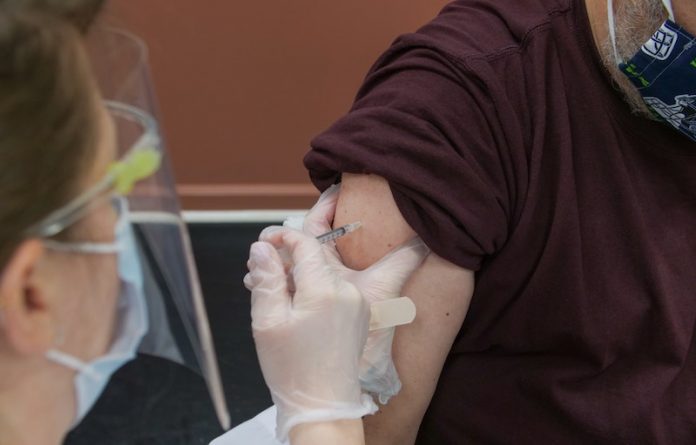
In a study from Gladstone Institutes, scientists found new antiviral drug may block COVID-19 transmission.
By the time you test positive for COVID-19, the SARS-CoV-2 virus has already taken up residence in your respiratory system.
With each breath, you expel invisible viral particles into the air—a process known as viral shedding.
Existing drugs aimed at treating COVID-19, even when they address symptoms of the virus, do little to quell viral shedding.
The team previously developed a novel approach for treating infectious diseases: a single-dose, intranasal treatment that protects against severe SARS-CoV-2 infection.
In the new study, they showed that this new treatment, called a therapeutic interfering particle (TIP), also decreases the amount of virus shed from infected animals and limits transmission of the virus.
This is the only single-dose antiviral that reduces not only the symptoms and severity of COVID-19, but also the shedding of the virus.
Last year, the team found TIPs could successfully block multiple different variants of SARS-CoV-2, reducing the viral load in the lungs by 100-fold and reducing many of the symptoms of COVID-19.
In the current study, the team examined whether TIPs could also reduce viral shedding—a separate question from reducing symptoms and viral load.
The researchers treated hamsters infected with SARS-CoV-2 with the antiviral TIPs and then measured, daily, the amount of virus in the animals’ noses.
Compared to hamsters that hadn’t received the TIPs (called control animals), treated animals had less virus in their nasal passages at every time point.
By day 5, all control animals were still shedding high levels of virus, while the virus was undetectable in four out of five TIP-treated animals.
When the SARS-CoV-2–infected animals were housed in cages with uninfected animals, treatment of the infected animals with TIPs did not fully prevent the transmission of COVID-19.
However, it did lead to significantly lower viral loads and milder symptoms of infection in the newly exposed animals.
The team is now seeking FDA approval for a clinical trial to test the TIPs in humans.
If you care about COVID, please read studies about new treatment option for COVID-19, and even mild cases of COVID-19 could leave mark on the brain.
For more information about COVID, please see recent studies about how finger length could help predict severe COVID-19, and results showing this new oral drug may prevent death from COVID-19.
The study was conducted by Leor Weinberger et al and published in Proceedings of the National Academy of Sciences.
Copyright © 2022 Knowridge Science Report. All rights reserved.



